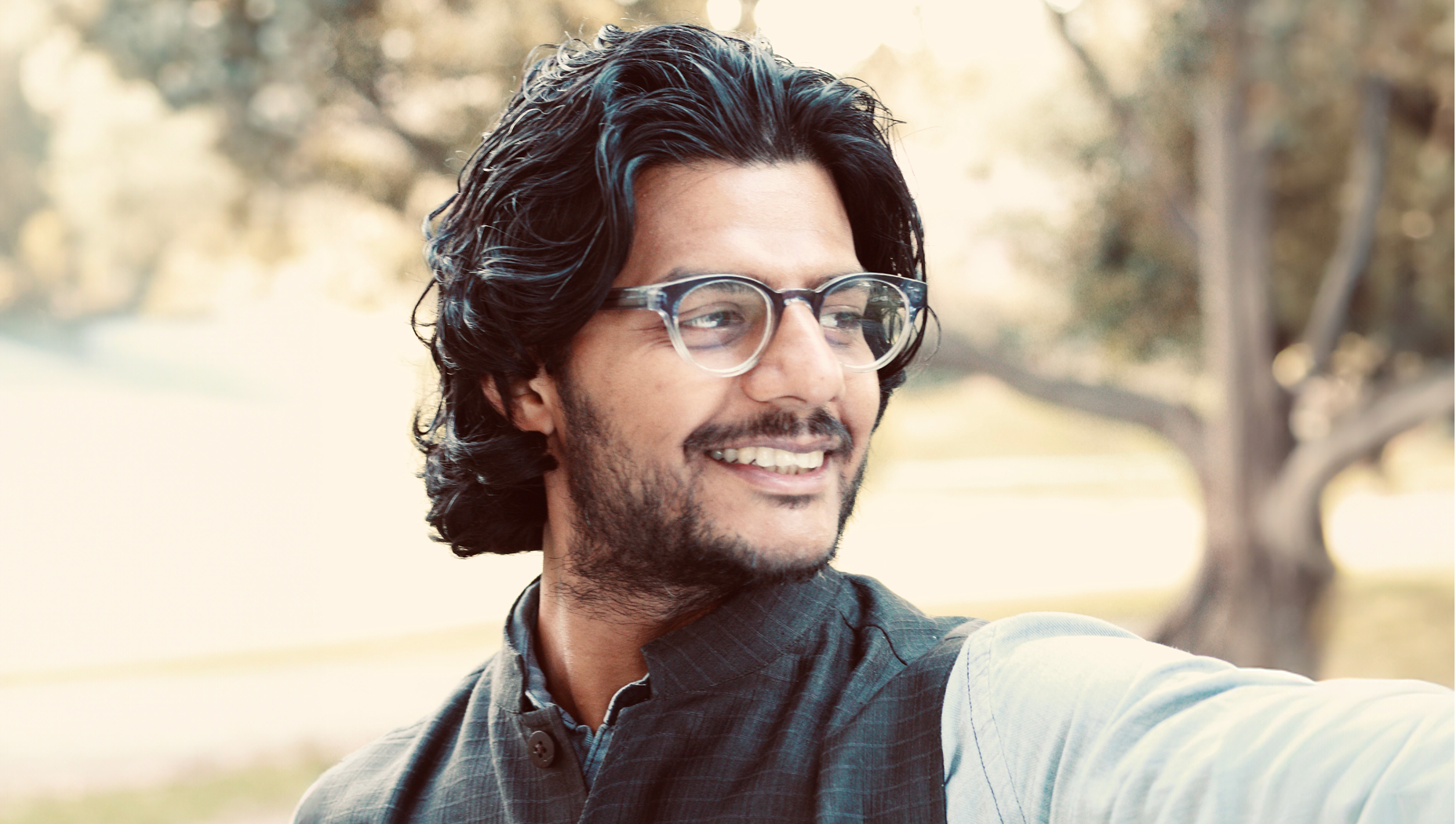
By Munyao Kilolo, Ph.D. student in comparative literature
Anirban Gupta-Nigam, a 2018 graduate of the visual studies Ph.D. program at UCI, has been newly appointed as Associate Director at the University of California, Berkeley's Institute for South Asia Studies.
His enthusiasm for this new role stems from the opportunity it gives him to integrate his talent for administrative work with his diverse research interests, including in the topic of research administration. And at the Institute for South Asia Studies, he goes beyond the confines of the humanities and also infuses elements of the social sciences into his work. He appreciates the rare commitment of the institute’s scholars to rigorous, in-depth research and adds, “I’m also liking the company of folks who love languages, and who speak more languages than I understand.”
An international perspective
Although he ended up doing the work he loves, Gupta-Nigam’s job search had followed the fairly conventional post-Ph.D. application process. Between 2018 and 2022, he pursued numerous faculty positions, even if he never idealized the faculty career. He was just convinced it was the most stable trajectory for him as an international student. This assumption is a common one for international students completing their Ph.D.s within the American academy. The typical post-Ph.D. employment challenges are even more daunting for international students, as many administrative positions do not provide visas for international job applicants.
Gupta-Nigam has consistently found that positions within the university outside of faculty roles are difficult to make legible, and therefore durable, for the purposes of obtaining visas. However, in the face of such obstacles, he persevered, learning how to negotiate situations that come with foreign student status. One of the ways this endurance helped was in navigating the U.S. academy itself. As he notes, he found it much more formal than he had experienced during his student days in India. It was hard to adjust to because it felt as if everyone was always short of time. This is especially true for international students, who are often expected to complete their degrees more quickly than domestic students.
Intellectual generosity and UCI
Gupta-Nigam found a vibrant community of scholars in Irvine, despite the challenges of transitioning from the Indian to American academy. “We joked about how we found the alienation of Irvine very productive for work. I had never been to a city where no one was walking on the roads! But the scholarly community in Irvine was great,” Gupta-Nigam says. He met a handful of people who were deeply interested not just in their projects but also in the underlying motivations driving the work they were undertaking.
“It was in these kinds of spaces where I learned how to read and be in dialogue. These spaces carried a generosity of exchange around ideas with friends. I have sustained these friendships and conversations, most of them grounded in agreement but also often not,” he says.
A background in humanities center collaborations
Before assuming his role at the Institute for South Asia Studies at Berkeley, Gupta-Nigam worked in two research institutes. The first was the system-wide UC Humanities Research Institute (UCHRI), based at UCI, where he developed and managed a range of national and international programs. He next served as the Associate Director of the Center for the Humanities and the Public Sphere at the University of Florida, where he became more involved in the administration of research, which constitutes a large component of his current position.
Gupta-Nigam’s expertise in administration was honed while a graduate student researcher at UCHRI. As he prepared to graduate in 2018, an opportunity arose when UCHRI secured a large Andrew W. Mellon grant to convene a national working group on the future of liberal arts and hired Gupta-Nigam as a postdoctoral scholar. His work there culminated in Liberal Arts in a Future Tense, the illustrated, collaborative report that was largely designed and produced during the pandemic. “But despite the inconveniences and difficulties of the lockdown, that job gave me many relevant skills, not just for the day-to-day but also for some of my dispositions and habits. I found administration much healthier than people imagine, and I think I learned these things at UCHRI,” Gupta-Nigam adds.
Some of the report’s key preoccupations, particularly with questions of institutional change and differences among different social groups, are even stickier issues in public discussion today. Its focus on pedagogy in a media environment rife with disinformation also speaks to current, still-pressing concerns. “Recent experiences, however, have led me to wonder if the disinformation problem is less one of having proper evidence than one of how we form judgments about it. It’s much easier to teach students how to spot an expert than to teach how to evaluate different, competing claims to expertise, with some degree of disinterestedness.”
While Gupta-Nigam is no longer working within the humanities, strictly defined, his humanistic sensibilities endure in current collaborations at the Institute for South Asia Studies, where public programs and research initiatives are designed with both the diaspora in the U.S. and local audiences in South Asia in mind. “Much like with my previous humanities center positions,” Gupta-Nigam reflects, “the generosity of colleagues and mentors makes my work an intensely collaborative and social experience.”
